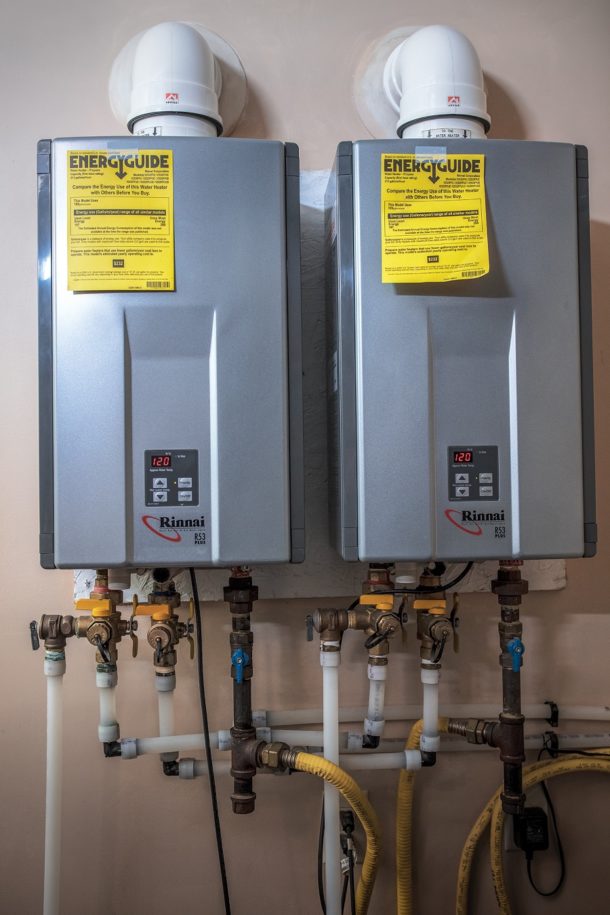Propane tankless systems are an efficient, affordable solution for any project What is your customer’s biggest water heating concern? Running out of hot water? Rising utility costs? Environmental sustainability? Builders, remodelers, and contractors can address any of these concerns by helping customers select a high-efficiency propane tankless system. Tankless technology is becoming increasingly popular because Read more
Propane Education & Research Council
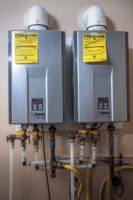
Propane tankless systems are an efficient, affordable solution for any project
What is your customer’s biggest water heating concern? Running out of hot water? Rising utility costs? Environmental sustainability?
Builders, remodelers, and contractors can address any of these concerns by helping customers select a high-efficiency propane tankless system. Tankless technology is becoming increasingly popular because of its versatility, convenience, and efficiency in both new construction projects and as retrofits to existing systems. These systems offer reduced energy costs, a long service life, and high volumes of hot water — and propane units provide a level of performance that electric and heating oil systems just can’t match.
But there are still some common misconceptions that can keep professionals and their clients from upgrading to a tankless water heater.
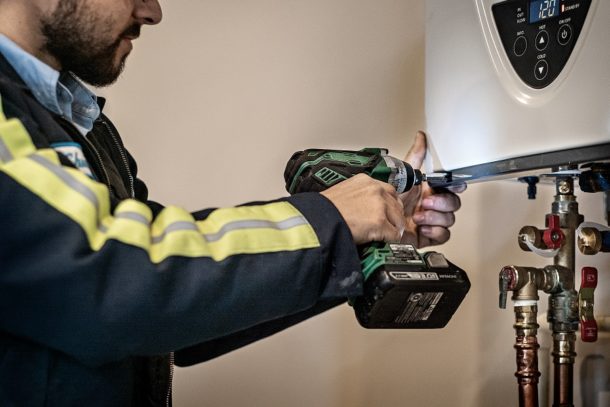
Here are four common tankless myths, debunked:
MYTH: Tankless water heaters are too expensive.
For some customers, it’s hard to look past the upfront cost of a high-efficiency tankless water heater, but it’s important to consider the system’s annual cost of ownership (ACO). Tankless water heaters reduce energy costs by up to 50 percent compared with storage tank water heaters and eliminate standby energy loss from the tank, as well as the unnecessary expense of heating water when it’s not being used — which ultimately reduces water heating bills. High-efficiency units pay for themselves in just a few short years — which is a big win for contractors and their customers. Big picture, they’re a smart investment. Plus, there are great rebates available to help bring the costs down.
In a 2015 comprehensive analysis of residential water heating systems, two propane tankless systems were found to offer the lowest ACO in eight out of nine scenarios covering different climate and housing types when compared with electric water heaters, heat pump water heaters, and heating oil systems. Propane tankless’ cost-effectiveness stems from the system’s low annual energy costs and long service life of roughly 20 years.
MYTH: Tankless water heating requires natural gas.
By incorporating propane into a project, construction professionals and contractors can give their clients the same luxury, performance, efficiency of a natural gas tankless system — no matter where the house is located. There are still a lot of builders that are building in rural areas where the natural gas line isn’t available and instead using electric tanks. They are simply not thinking of propane tankless just because it’s not as common.
What many builders and contractors may not realize is how construction-friendly this energy source is. Propane is used much like natural gas and is easy to incorporate into a project. Plus, with propane, professionals and their customers aren’t at the mercy of a public utility. Meanwhile, performance is never sacrificed. Propane tankless water heaters provide an endless supply of hot water, averaging about 222 gallons per hour, compared with an average first-hour delivery rating of just 62 gallons per hour for electric storage tank models.
MYTH: Tankless systems require complicated venting.
Venting for propane tankless systems is flexible, easy, and inexpensive. Given the unit’s compact size and direct-vent design, they can be installed in closets, tight spaces, and even outdoors. Upgrading from an electric tank to an interior propane tankless system may require a little more planning, but high-efficiency units can be vented straight through the wall with inexpensive PVC pipe.
MYTH: Tankless won’t work with well water.
Tankless is a great option for customers, whether they use city water or well water. When a water heater heats water, a small amount of scale can form on the heat exchanger, so periodic flushing is required to keep tankless water heaters functioning at their best. Homes with harder water or more usage will have more scale, but city water versus well water won’t affect this. Many modern tankless systems will notify the homeowner when they need to be flushed or can even be set up to notify a technician when maintenance is required. Regardless of the water source, a water softener can greatly reduce the scale created, allowing for much longer intervals between flushing. And maintenance is key — if properly maintained, propane tankless units last twice as long as traditional tank systems.
Don’t let customers settle when it comes to water heating performance for their home — and for many projects, this means choosing the limitless hot water delivery and efficiency of a propane tankless water heater. Visit Propane.com/Water-Heating to learn more.
 Bryan Cordill is director of residential and commercial business development for the Propane Education & Research Council. He can be reached at bryan.cordill@propane.com.
Bryan Cordill is director of residential and commercial business development for the Propane Education & Research Council. He can be reached at bryan.cordill@propane.com.
Washington — The Propane Education & Research Council released a video for commercial builders and contractors that provides a comprehensive overview of tankless water heaters. The video details how the systems work, their role in meeting LEED certification, and more. https://youtu.be/A24yGp-dUek “Many commercial building owners and operators are finding tankless water heaters to be a valuable Read more
Washington — The Propane Education & Research Council released a video for commercial builders and contractors that provides a comprehensive overview of tankless water heaters. The video details how the systems work, their role in meeting LEED certification, and more.
“Many commercial building owners and operators are finding tankless water heaters to be a valuable investment — whether in retrofits or new construction projects,” said Bryan Cordill, director of residential and commercial business development at PERC. “These systems are bringing significant space and energy savings to businesses across the country, especially as tankless technology continues to evolve. This video helps showcase how propane tankless systems can be a solution for a wide variety of commercial building types.”
The video outlines the importance of maximizing space and efficiency in commercial buildings, given that water heating is a major energy consumer in many buildings — particularly older buildings in need of renovations. In fact, nearly 80 percent of water heating energy use occurs in buildings built before the year 2000.
Current water heating technology, especially propane tankless systems, can offer big improvements in terms of performance, energy use, and energy costs. Plus, they’re versatile, so tankless technology for commercial buildings can meet a wide range of load types. As outlined in the video, individual tankless units can be combined into larger configurations, allowing them to provide hot water rates of several hundred gallons per minute — and ultimately, the ability to handle water heating no matter the size or scope of a building.
Visit Propane.com/Commercial-Buildings to learn more about the advantages of going tankless in commercial buildings.
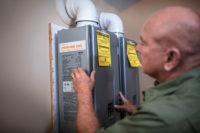
Mechanical Hub recently chatted with Bryan Cordill, director of residential and commercial business development for the Propane Education & Research Council (PERC) to discuss his role and efforts to support and grow propane demand in the residential and commercial construction markets. Cordill spent 17 years working as a sales manager for his family’s propane business Read more
Mechanical Hub recently chatted with Bryan Cordill, director of residential and commercial business development for the Propane Education & Research Council (PERC) to discuss his role and efforts to support and grow propane demand in the residential and commercial construction markets.
Cordill spent 17 years working as a sales manager for his family’s propane business, Cordill Butane-Propane Service — an independent propane supplier in Monroe, Louisiana. He was then named business development officer at Ajasent Inc., where he provided cloud hosting services for propane and related service companies. Most recently, Cordill co-founded Proponent LLC — a consulting company — where he worked with company leadership to develop and deploy new strategies.
Cordill has a master’s degree in industrial and organizational psychology from Louisiana Tech University. He lives in Monroe, Louisiana.
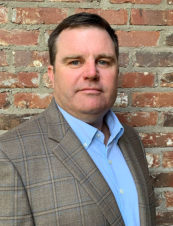
Bryan Cordill is the director of residential and commercial business development for the Propane Education & Research Council.
MH: Bryan, great to run into you at AHR Expo and glad that you can give us a few minutes to beter understand your role with PERC. Can you give us a bit about yourself: How long have you been involved with the Propane Education & Research Council. (PERC), in the industry, and what has your journey in this industry looked like up to this point? What is a day like for you at PERC?
BC: Thanks Tim, I started with PERC as the director of business development for residential and commercial markets in June of 2019. My family has been active in the butane or propane industry since about 1932 when my grandfather started the Winnsboro Butane Company in Louisiana. He and his partners ended up selling that business as WWII was starting and they knew they wouldn’t be home to work it. He had several other companies with partners, but eventually opened Cordill Propane with my grandmother in 1963. I started working there part-time when I was about eight years old — riding with drivers, pulling hoses for them, and fetching tools for service techs. After college, I went to work full-time mostly in growth area for the company and did that until my dad retired and sold the business a few years ago. So, I have pretty much had every job there is in a propane company.
A day in the life a PERC looks different every day. We met at the AHR Expo and I spend a lot of those days walking tradeshow floors meeting with our OEM partners to talk about ongoing projects. Sometimes, I help them by being a subject matter expert on what propane marketers or customers are looking for in a product. I like to be available for media interviews like this and have even been interviewed on a couple of podcasts lately. I set our communications strategies for both markets, but fortunately I have a ton of help executing that. Commercial and residential markets are just under 70 percent of all propane sales today, so in growing that across 50 states, no two days are alike.
MH: Please provide us with a quick elevator speech about today’s PERC, including the mission and vision of PERC?
BC: Our overall goal at PERC is to grow users and uses of propane here in the United States. To that end, we educate and train today’s propane industry workers on safety, as well as the skills necessary to provide superior customer service. We partner on research to hopefully find the next big thing, or maybe the next several little things, that will help develop those uses and grow users. And we act as a conduit of information between industry, builders, site planners, equipment manufacturers and distributors, specifiers, architects, designers, allied trades, and the end user of the products.
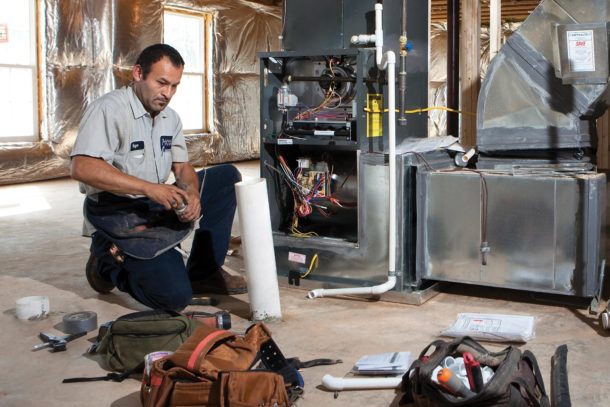
MH: The market has seen significant growth over the past 10+ years, how is the current economic climate affecting the industry? What are some of the challenges and how is PERC addressing those challenges?
BC: When you consider where we were in new residential construction prior to the housing or lending crisis of 2007, we haven’t seen a return to new installs of that level, but we have experienced a more sustainable, steady growth in year-over-year market share. One challenge is the continued efficiencies in products and busy lifestyles of families. The same home today uses less energy than 10 years ago. There has been a good bit of consolidation in our industry, just like my family selling its business, many families have sold to larger regional or national companies. It’s important to PERC that those surviving companies remember that their competition is not another propane company. Our industry only grows and gets stronger if we focus on our competing fuels and their use in our homes, offices, warehouses, cars, trucks, busses, and on our farms. The truth is, propane can and is successful in all those places. We just can’t take our eye off the ball. PERC has to continue sharing our stories so customers know that propane can do that.
MH: How is PERC addressing environmental issues in the industry and the “Green” movement?
BC: I think we see the electrification of everything as a major challenge and concern for the industry. Propane can play a significant role in reducing carbon emissions as well as greenhouse gasses. Propane has a very attractive carbon footprint, it is not a greenhouse gas, and is incredibly more efficient than electricity when compared on a source-to-site evaluation. Source-to-site includes all of the energy required to produce, transport, go through transformers, and then finally delivered to the appliance. On a national average, it takes over 3 units of energy at a power plant (3.03) to get 1 unit of energy at the power plug. It takes 1.15 units of energy at the propane plant to get 1 unit of energy at the home in a burner. To make things worse for electricity, we are able to use all of the renewable energy that is produced in our country, and nuclear plants work best at stable output rates. If we keep moving to require more electrical demand the plants that can meet that need are fueled by either coal or natural gas. In all reality, electrification does not equal de-carbonization. If anything, using more electricity in our homes and business will cause greater emissions of carbon dioxide and greenhouse gasses.
I believe we have to understand there is no one-size-fits-all approach that will solve this. If we use the right fuel, in the right place, for the right thing, we will all be better off. I have no desire to go back to coal lamps or candles — I really like my led light bulbs. But we also don’t want to see consumers being told they have to use lesser-quality, more expensive electric appliances than the high comfort products that deliver continuous supplies of hot water, warm air and chef-preferred cooking.
In addition, PERC is working to increase the availability of renewable propane. We currently have two plants in production and working to grow more. PERC is also in the process of getting resources to our marketers so they can speak confidently with their customers about propane’s role in a clean environment. Part of that may be talking to school districts about clean, quiet propane-fueled school busses that have over 90 percent fewer emissions than a clean diesel competitor, and studies have shown students that ride on these busses actually score better on standardized test. Another component may be talking to the school about converting their older, inefficient boilers to newer, high-efficiency units. And that by planning that installation and budgeting the cap ex, you save tremendously over having to do an emergency repair. Or maybe it’s talking to customers in California that have experienced regular and prolonged power outages to meet their onsite needs with generators or even combined heat and power units.
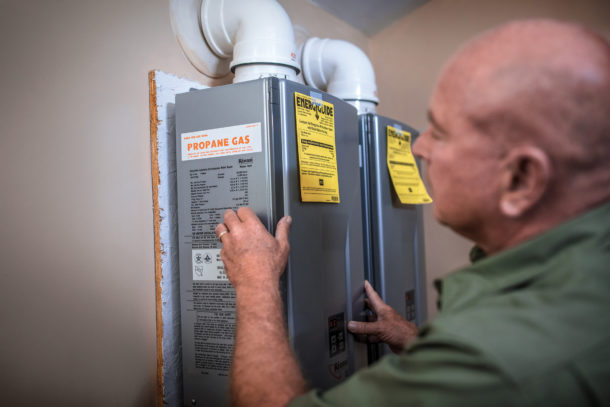
MH: What are a few trends that PERC has identified in the industry?
BC: There is a lot of discussion and traction for the rapidly growing cannabis industry. A lot of these facilities are built in places without access to natural gas, and many don’t have adequate high voltage power lines to meet their demand in a cost-effective means. We see increased adoption of gas heat pumps in those and other commercial spaces where electric rates continue to climb. There are still many oil-fired boilers in the northeast and mid-Atlantic. Converting those to clean propane boilers or commercial water heaters is seeing continued growth. Tankless water heater technology continues to improve, and we see new installations that free up so much floor space in the mechanical room you hardly recognize it. There’s also tremendous growth in hospitality, not just restaurants but also hotels. CHP, CCHP and micro-CHP are all getting attention from manufacturers. We saw four or so different manufactures and approaches to delivering these products while at the show.
MH: How do you see PERC changing in the future, and how do you see yourself helping in creating that change?
BC: We are really in the middle of the change. We have completely rebuilt what business development looks like for PERC, we have taken full control of the industry safety and training program, and we are building out a modular training curriculum that will be available soon. We will also be able to deliver propane safety training to our allied industries — particularly the plumbing and HVAC communities. I get to be in the middle of delivering all of that knowledge to our commercial and residential partners. Last week alone, our team met directly with over 20 different companies about their products and commercialization efforts. It really is an exciting time.
MH: How are standards used in the industry, and what have they meant to its overall history and development?
BC: There are a number of different standards that impact the propane industry. Many are the ones that affect how products are built and certified, so ANSI, ASME, UL, CSA, CARB, and plenty of others. But the ones that directly affect the delivery and installation of the product are things like CFR49, Pipeline Safety, and NFPA 54 and 58, those are the main fuel gas codes. These have helped to provide a very safe and dependable storage and delivery plan that allows builders, engineers, specifiers, or owners to feel comfortable using propane in their projects.
MH: How are you strengthening and building on your brand, training and resources available to members and non-members?
BC: PERC doesn’t really have members and non-members. We are funded by an industry-adopted mandatory assessment. We are a non-profit, so our resources are available to all. Just last year we migrated a ton of different websites to a single destination, Propane.com, which is a great source for everything we do. There are separate sections for commercial buildings and operations, as well as residential construction. We have a ton of information that is just focused on the consumer and answering questions they have. This is also the portal for our new learning center and all of the associated training that will be housed there. On top of all of that, we have resources that are designed and set up to help propane marketers grow their business.
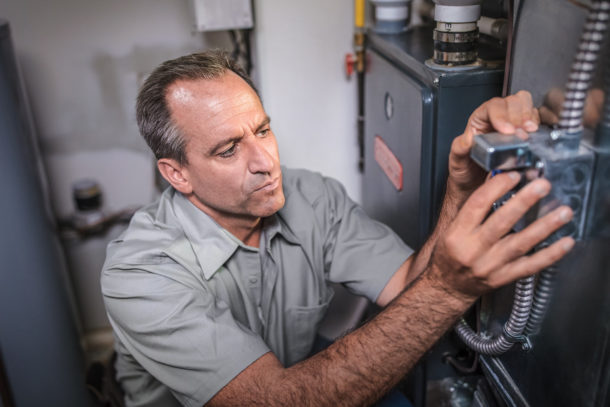
MH: What are some of the things you’re doing to boost PERC’s visibility and grow market share?
BC: Obviously, one is getting the chance to visit with professionals like you and telling our story to your audience. We also invest in case studies and research to give real examples that propane can do that. I work on reaching every level of the decision chain — from site selectors, to planners and engineers, to installers. For the site selectors who are looking for land to build a project, I want them to know gas is available to them even when natural gas might not be. To the planners and engineers that are laying out the project and specifying the mechanical components, I want them to be sure they understand all of the products that are available to them. To the installers, we want to help them feel comfortable and confident in propane. And through all of that engagement, we will grow market share by having a well-informed customer reaching out to a well-prepared and knowledgeable propane marketer at the time of purchase. I don’t get to actually sell or deliver propane anymore. I just get the great job or working across the country with all of our wonderful partners to deliver that market share growth.
MH: In closing, is there anything you’d like to add?
BC: I would just suggest that your readers reach out to us at PERC if they have questions or concerns. I am available bryan.cordill@propane.com and as I mentioned, Propane.com is a great resource.
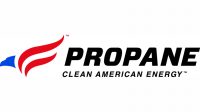
PERC revamps website to showcase the versatility of propane The Propane Education & Research Council recently relaunched its website, propane.com, which was redesigned from the ground up to help users find even more information about all the things propane can do in a user-friendly format. All of the great resources that builders were used to Read more
PERC revamps website to showcase the versatility of propane
The Propane Education & Research Council recently relaunched its website, propane.com, which was redesigned from the ground up to help users find even more information about all the things propane can do in a user-friendly format. All of the great resources that builders were used to finding on PERC’s previous site, BuildWithPropane.com, is located on the new site, too.
“We took everything that construction professionals told us they loved about our old site and incorporated it into the new propane.com,” said Jesse Marcus, PERC director of residential and commercial business development. “The site is filled with content to educate residential and commercial construction professionals how to stand out from the competition, enhance their reputation, improve their projects’ carbon footprint, and much more.”
Construction professionals can find videos, case studies, emissions data, and fact sheets showcasing the propane-powered technologies and applications available, along with their advantages.
To learn more about propane-powered technologies, or to access online resources available from PERC, visit propane.com.

